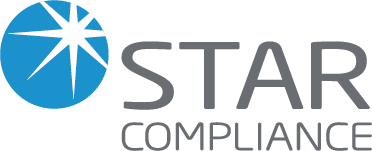47,000 firms will be affected by the new regulations, as well as countless individual employees
The financial crisis is the gift that keeps on giving. Following the crash of 2008 the UK government, like other western governments whose financial systems were left teetering on the brink of collapse, was determined to find a way to fix what it saw as a broken banking culture. Out of that desire came the 2012 Parliamentary Commission on Banking Standards. Out of that came the Senior Managers and Certification Regime, or SM&CR.
The SM&CR went into effect for all banks on March 7, 2016. This included building societies, credit unions, PRA-designated investment firms, and UK branches of foreign banks. Left off that list was the wider community of solo-regulated financial firms: those regulated only by the Financial Conduct Authority, or FCA. There are approximately 47,000 of these solo-regulated firms, and on July 4, 2018 the FCA released its "near-final rules" for extending the SM&CR to them.The new regime goes into effect on December 9, 2019.
Here's a summary of what the extended SM&CR is all about, how to know if your firm will be affected, a list of required forms with links, and some initial thoughts on preparing for implementation.
WHAT'S THE PURPOSE AND PRIMARY FOCUS?
- The SM&CR changes how the FCA regulates people working in the financial services industry. It replaces the Approved Persons Regime, created by the Financial Services and Markets Act 2000.
- Overall, the SM&CR aims to reduce possible harm to consumers by financial firms, as well as strengthen market integrity by creating a system in which firms and regulators can better hold individual employees to account.
- In particular, the SM&CR encourages staff to take personal responsibility for their actions, asks firms to make it clearly understood who's responsible for what, and works to improve conduct at all organizational levels.
WHAT'S THE NEW CODE OF CONDUCT?
The Conduct Rules, as the FCA formally refers to its SM&CR code of conduct, set minimum standards for individual behavior in financial services firms. They will apply to nearly all employees engaged in financial services activities working in financial firms, though some Conduct Rules may apply only to senior managers.
- The Senior Managers Regime: The most senior people—senior managers—who perform key roles—senior management functions—will need FCA approval before starting their roles. All senior managers will need to have a statement of responsibilities that lays out exactly what it is they're responsible for.
- The Certification Regime: This will apply to employees whose role means it's possible for them to cause significant harm to the firm or to customers. These roles are called certification functions. They will not require FCA approval, but firms will need to check and confirm, or certify, that said employees are fit to perform their roles at least once a year.
WHICH FIRMS WILL BE AFFECTED?
- Nearly every firm the FCA regulates will be affected. Naturally, the SM&CR will apply to all firms that are currently subject to the Approved Persons Regime.
- Those affected will range from the very small and those with limited permissions—including individual traders and limited-permission consumer credit firms—to some of the biggest global financial firms.
- All FSMA authorized firms will have to comply with the extended SM&CR. The SM&CR will also apply to branches of non-UK firms with permission to carry out regulated activities in the UK.
HOW IT WILL APPLY TO THOSE AFFECTED?
The SM&CR will be extended in proportion to the size of the firm. If you work for an affected firm, you'll need to determine which tier of the new regime will apply to you. This will help determine the steps you need to take to comply. There are three tiers under the extended SM&CR:
- Core—Firms in the core tier will have to comply with the more basic requirements of the SM&CR and will likely make up the bulk of those firms affected by the new regime.
- Enhanced—Enhanced requirements will apply to a smaller number of firms: those whose size, complexity, and potential impact on consumers and/or markets warrants more attention.
- Limited scope—Some firms already have exemptions under the Approved Persons Regime. These firms will be exempt from some of the SM&CR baseline requirements.
There are two options for determining which tier applies to you:
- Read the FCA's SM&CR Guide For FCA Solo-Regulated Firms.
- Use the FCA's step-by-step, online firm-checker tool.
RELEVANT FORMS AND WHERE TO FIND THEM
The new SM&CR comes with new forms for all Relevant Authorized Persons. Find the most important forms listed below, along with links.
UK Relevant Authorized Persons and Third Country Relevant Authorized Persons only
Application to perform senior management functions
Long Form A
UK Relevant Authorized Persons and Third Country Relevant Authorized Persons only
Application to perform senior management functions
Short Form A
EEA Relevant Authorized Persons only
Long Form A
EEA Relevant Authorized Persons only
Short Form A
Application To Perform Controlled Functions
Guidance to come
Notice to withdraw an application to perform controlled functions (including senior management functions)
Notice of ceasing to perform controlled functions (including senior management functions)
Internal Transfer Of An Approved Person
Guidance to come
Notification of Significant Changes in Responsibilities of a Senior Management Function Manager
Senior Management Regime: Statement of Responsibilities
Senior Management Regime: Statement of Responsibilities (EEA Relevant Authorized Persons only)
This time it's personal
Again, the extended SM&CR goes into effect on December 9, 2019. That sounds like a longer time to prepare than it actually is. The SM&CR is a complete overhaul of the previous regime. There's not just a lot of new material to become familiar with, on the most in-depth of levels, there's a lot of thinking and rethinking to be done regarding firm and employee expectations and responsibilities.
The SM&CR focuses much more on individual accountability than the Approved Persons Regime. In particular, the SM&CR introduces something called the statutory duty of responsibility. This will require senior managers to take reasonable and proper steps to prevent regulatory breaches from occurring in their areas of responsibility. As such, it's leading many of them to reassess the scope of their responsibilities and to review their approach to controlling and managing their areas.
In 2016, when the SM&CR hit the banks, it made more of a difference to the way they operated than expected. Sooner rather than later it will be wise to get your head, and the firm's collective head, around the idea that under the SM&CR employees can be held personally responsible for missteps. The FCA has drawn a straight line between lack of accountability at the senior-management level and firm misconduct. Clarity on roles and what's expected will be key moving forward. Under the SM&CR, it really is all about you.


